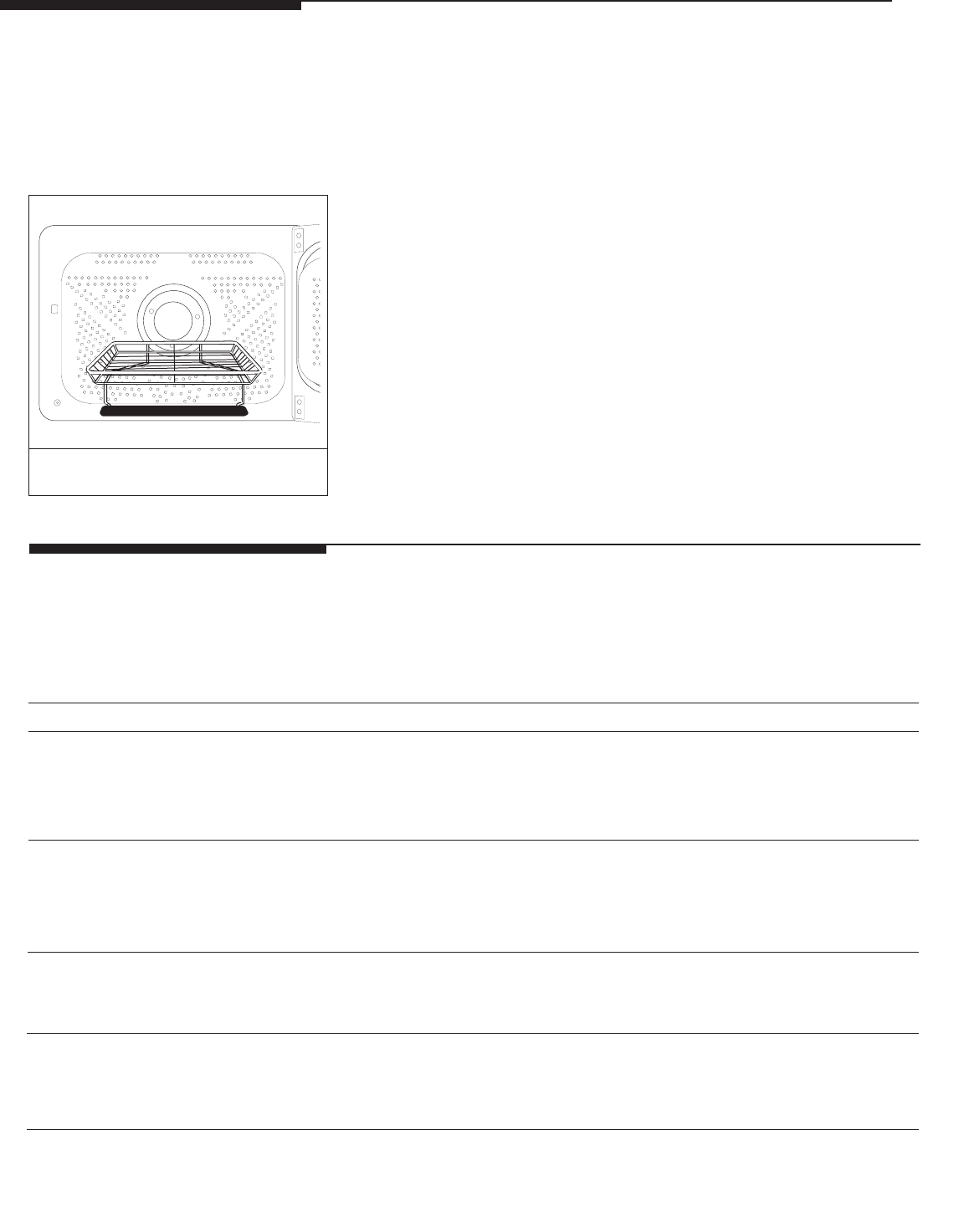
10
Features
Cycle Signal Control (some models)
When the Cycle Signal Control is ON, a signal will sound at the end of each cycle and
during the Press Saver setting (some models). The volume is adjustable on some
models.
Drum Light (some models)
A drum light will come on whenever the door is opened to illuminate the dryer drum
during loading and unloading. Closing the door turns off the light.
Drying Rack (some models)
Use the drying rack to dry items which should not be tumble dried.
1. Open the dryer door and remove the lint screen.
2. Insert drying rack into the dryer drum. Place the front bar under the lip of the lint
screen opening.
3. Place items to be dried on top of rack. Weight should not exceed 10 lbs. Leave
space between items, but do not let items hang over the sides or through the
grids. Do not tumble other items when using the drying rack.
4. Select a timed dry setting best suited for items being dried. Use only the Air Fluff
(no heat) temperature setting for items containing plastic, foam rubber, rubber-
like materials, feathers or down.
5. When items are dry, remove the rack and replace the lint screen. If lint screen
is not in place, tumbling items could enter the exhaust system and cause damage
to the dryer.
Greasy, oily
stains
Lint
Pilling
(Fibers break off,
ball up and cling
to fabric.)
Shrinking
Wrinkling
PROBLEMPROBLEM
PROBLEMPROBLEM
PROBLEM
•Rub fabric softener stains with bar
soap. Rinse and rewash.
•Reduce load size and rewash using
liquid fabric softener in the final rinse.
•Or, add a fabric softener sheet and
tumble at low heat for 5-10 minutes.
•Use lint brush or roller to remove lint.
•Use a lint brush or shaver to remove
pills.
•Irreversible condition.
•Reduce load size and tumble at low
heat for 5-10 minutes.
•Remove items immediately. Hang or
fold.
SOLUTIONSSOLUTIONS
SOLUTIONSSOLUTIONS
SOLUTIONS
•Add a few bath towels to small loads for proper
tumbling.
•Some "silk-like" fabrics should be air dried.
•Use proper drying temperature.
•Place fabric softener sheet on top of load before
starting the dryer.
•Do not overload dryer.
•Use fabric softener in washer or dryer to reduce
static electricity.
•Remove items when they are slightly damp to
avoid overdrying.
•Check that lint screen is clean and in place.
•Use fabric softener to lubricate fibers.
•When ironing, use spray starch or fabric finish on
collars and cuffs.
•Turn items inside out to reduce abrasion.
•Follow fabric care label directions.
•If shrinking is a concern, check load often.
•Remove items while slightly damp.
•Block knits into shape.
•Lay flat to complete drying.
•Do not overload dryer.
•Remove items as soon as cycle ends.
PREVENTIVE MEASURESPREVENTIVE MEASURES
PREVENTIVE MEASURESPREVENTIVE MEASURES
PREVENTIVE MEASURES
POSSIBLE CAUSESPOSSIBLE CAUSES
POSSIBLE CAUSESPOSSIBLE CAUSES
POSSIBLE CAUSES
•Fabric softener sheet.
•Overloading.
•Overdrying causes static
electricity.
•Lint screen not clean when
cycle began.
•Lint is attached to "pills."
•Pilling is normal with synthetic
and permanent press fabrics.
This is due to abrasion from
normal wear.
•Overdrying.
•Overloading.
•Leaving items in dryer after
cycle ends.
Common Drying
Problems
Many drying problems involve poor cleaning results, poor soil and stain removal, residues of lint and scum, and fabric damage.
For satisfactory drying results, follow these suggestions provided by The Soap and Detergent Association.
Use the drying rack to dry items which should
not be tumbled.
